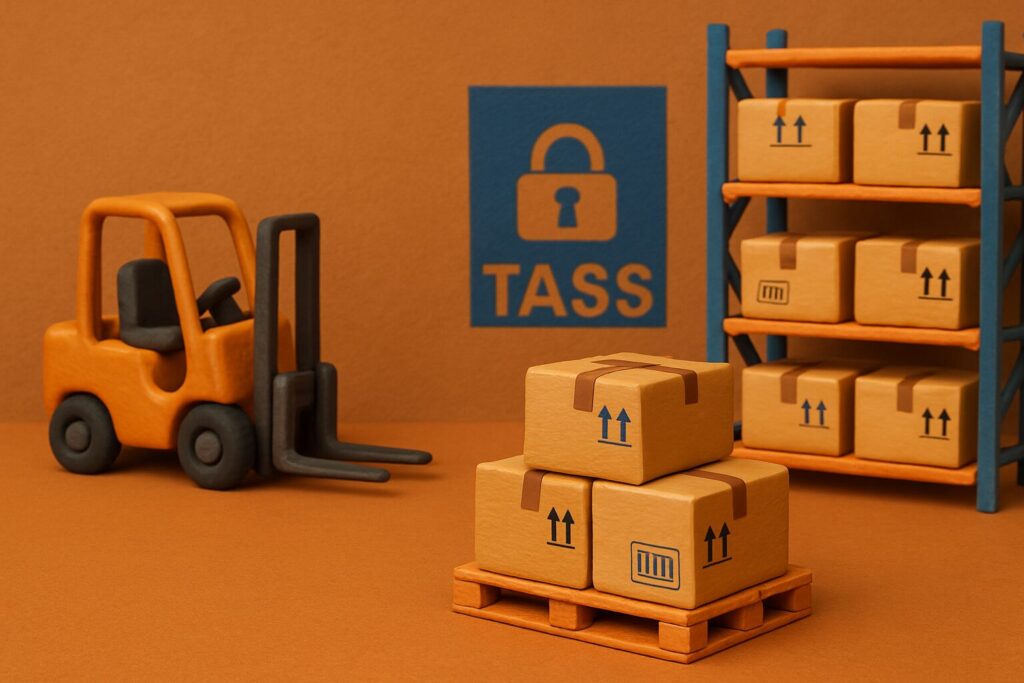Charity storage is one of the biggest challenges many non-profits face. From donated goods and event equipment to seasonal stock and vital documents, finding secure, affordable, and accessible space can make the difference between smooth operations and unnecessary stress.
In this guide, we’ll explore why storage matters for charities, what options are available, and how the right approach can save both money and time.
Why Charities Need Storage

Unlike businesses with fixed supply chains, charities rely heavily on donations, which can be unpredictable. One week you may receive a trickle of items; the next, you might be overwhelmed with a flood of goods. Without proper charity storage, this inconsistency can lead to cluttered offices, misplaced items, and even wasted donations.
Charities typically need storage for:
Donated goods such as clothing, food, toys, and household items that can quickly outgrow on-site space
Fundraising equipment including banners, collection buckets, tables, gazebos, and sound systems
Seasonal items such as Christmas hampers, school uniforms, or winter clothing drives
Archival documents that must be kept for compliance but are rarely accessed
Furniture and fixtures from office relocations or refurbishments
Challenges Charities Face with Storage
Many charities try to store items in back rooms, garages, or rented corners of offices. While this may work short term, it creates several challenges:
Limited space in offices and retail units, which are costly to use for storage
Health and safety risks caused by clutter and piles of boxes
Inconsistent supply of donations that can overwhelm available space
Wasted volunteer time spent sorting through unorganised items
Compliance risks when important documents are not stored securely
Storage Options for Charities

The best storage solution depends on the size of the organisation, its budget, and the type of items being stored.
Self-Storage Units
Flexible rental options for short or long term
Easy access during opening hours
Ability to upsize or downsize based on demand
CCTV and monitored security
Commercial Warehousing
Large-scale storage for bulk donations
Pallet racking and tracking systems
Optional services such as order fulfilment and delivery
Climate-controlled environments for food and sensitive items
Archive Storage
Secure facilities for contracts, records, and financial documents
Catalogued and retrievable files
Collection and delivery options
Shared or Donated Space
Free or low-cost storage donated by businesses or community groups
May come with risks such as limited access or inconsistent availability
What to Look for in a Charity Storage Provider
When choosing a provider, charities should consider:
Strong security with CCTV, alarms, and controlled access
Convenient accessibility with flexible hours and good transport links
Scalable options that can expand as demand grows
Cost-effective rates with potential discounts for non-profits
Additional services such as inventory management or deliveries
Clean, dry conditions to protect items from damage
Best Practices for Managing Charity Storage
Good storage management ensures efficiency and reduces waste. Charities should:
Sort donations as soon as they arrive and categorise clearly
Use simple inventory systems to track stock
Rotate items to ensure older donations are distributed first
Label boxes in large, clear writing for quick identification
Carry out regular audits to keep track of stored goods
Train volunteers in handling and organising storage areas
Plan ahead for seasonal surges such as Christmas or school campaigns
Case Example: Food Banks
Food banks show how critical charity storage can be. Donations often arrive in bulk, and without proper facilities, food risks spoiling before it reaches families. Palletised storage, climate-controlled environments, and clear labelling allow charities to distribute food quickly and safely to those who need it most.

The Long-Term Benefits of Organised Storage
Charities that invest in storage gain several long-term benefits:
Improved efficiency, with volunteers spending less time searching for items
Safer workspaces free from clutter and hazards
Stronger donor confidence, thanks to professional handling of goods
Compliance with regulatory requirements for documents and records
Greater flexibility to accept large-scale donations without fear of space issues
Conclusion
Charity storage is not just a practical necessity; it is essential for smooth and effective operations. Whether handling donations, equipment, or records, the right storage ensures resources are used safely, efficiently, and responsibly.
At TASS Hertford, we understand the unique needs of charities. From secure archive storage to flexible warehouse space, our facilities are designed to support non-profits of all sizes.
📞 To find out how we can help your charity simplify storage, call us on 01992 587710 / 01992 940 330, or message us on WhatsApp: 07392 950876.
That’s TASS!





